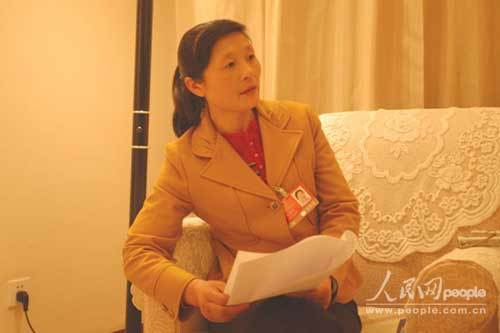Sanitation workers face long hours, poor working conditions, low pay, and health hazards, according to a deputy at the National People's Congress, who called for the government to take action. The deputy also called on the public to show proper respect and care for this essential group of workers, www.xinhuanet.com reported on March 12.
|

|
|
Sun Guoqing, vice director of the Qinghe District Public Sanitation Department in Huai'an City, Jiangsu Province, says poor working conditions and low pay are widespread in the industry, and demanded urgent action. Sun has been a sanitation worker for 26 years. |
Sun Guoqing, vice director of the Qinghe District Public Sanitation Department in Huai'an City, Jiangsu Province, said poor working conditions and low pay were widespread in the industry, and demanded urgent action.
Sun has been a sanitation worker for 26 years. She was awarded the title of "national model worker" for her extraordinary achievements in what many people consider a lowly job.
"Sanitation workers do not get proper public respect," she said. "People casually throw garbage in the streets, which sanitation workers then have to sweep up. And they make rude and insulting remarks to us."
Sun said that in Huai'an City, "Sanitation staff work from 4 a.m. to 11 p.m. (midnight in summer) every day, far beyond the regular eight hour day. And their wages are terribly low. The monthly salary of a permanent employee is about 1,500 yuan (US$219) while temporary staff only get around 700 yuan (US$102)."
She said the government needs to act quickly to bring in new pay structures.
Sun also called on the government to act on occupational health issues. "According to the Law on Prevention and Cure of Occupational Diseases, it is the government's responsibility to prevent and cure sanitation workers' occupational diseases. Sanitation departments must conduct regular health examinations."
"The government should also strengthen its environmental monitoring and improve working conditions for sanitation workers."
Sun said the government should amend the Regulations for City Appearance and Environmental Sanitation issued in 1992. "The regulations do not meet the needs of urban management any longer. For example, they don't cover household pets, something people have been very concerned about in recent years."
(China.org.cn by Li Jingrong, March 13, 2009)